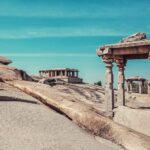The Lokpal Bill

 Politicians and top bureaucrats will face the heat as the Lokpal Bill to set up a strong anti-corruption ombudsman to probe corruption in high places received the overwhelming approval of the Rajya Sabha.
Politicians and top bureaucrats will face the heat as the Lokpal Bill to set up a strong anti-corruption ombudsman to probe corruption in high places received the overwhelming approval of the Rajya Sabha.
The lokpal has tougher provisions as compared to the bill cleared by Lok Sabha in December, 2011. The bill, comprehensively reworked by a select committee of the Rajya Sabha, will be considered afresh by Lok Sabha on Wednesday. The PM will be under the purview of the lokpal with some safeguards. All ministers and senior public servants are covered by the proposed ombudsman that is a step away from parliamentary approval some 46 years after it was first mooted.
The government accepted leader of opposition Arun Jaitley’s suggestion that the select committee recommendation that a CBI officer investigating a graft case should not be transferred without the ombudsman’s concurrence be incorporated in the bill.
Similarly, an official will not be given a hearing at the stage of a preliminary inquiry. Both suggestions are part of the select committee’s unanimous recommendations tabled in Parliament more than a year ago.
Lokpal became top priority for the government after Congress lost elections in four major states and the Aam Aadmi Party (AAP) made a stunning political debut in the Delhi assembly polls.
The bill’s passage in the Upper House on Tuesday evening is seen as the culmination of the popular anti-corruption agitation that swept India in 2011 when Gandhian activist Anna Hazare undertook three fasts for a lokpal.
The bill was discussed without disruptions as Samsjwadi Party MPs kept away from proceedings after party chief Mulayam Singh Yadav met Prime Minister Manmohan Singh and Congress president Sonia Gandhi on Tuesday morning.
With the principal detractors absent, the bill drew all around support, with the exception of the Shiv Sena, and the government also accepted two key amendments that had not been part of the bill when it was tabled on Friday.
With the government accepting all the select committee’s recommendations, the vastly transformed bill will be considered afresh by Lok Sabha on Wednesday. Once both Houses approve the legislation, it will be sent to President Pranab Mukherjee for notification.
Parliament has tried to pass Lokpal Bill eight times previously. The bills to create a lokpal to investigate corruption in high places lapsed seven times in the past while it was withdrawn once in 1985.
The bill brings the PM under its purview with certain safeguards. It also covers ministers and MPs besides all government employees.
Law minister Kapil Sibal, who moved the bill for passing, hailed the occasion as a “historic” day and hoped all states would pass similar legislations to set up Lokayuktas modelled on this bill.
The Lokpal Act will be a model law for states who will have to set up lokayuktas within a year. Though it will be the discretion of the states to make some changes a Lokayukta will be a reality in all states.
Jaitley, while supporting the bill, said he was happy the government had accepted all the changes in “this changed environment” — an oblique reference to the Congress getting a drubbing in assembly elections as well as strong pro-transparency movements.
Sibal said the law alone would not eliminate corruption but it could help deal with those who are corrupt. On the issue of bringing the Prime Minister under the purview of the new law, he said the overall consensus was in this favour although there were some “discordant individual views” opposing it.
Except for the BJP’s demand that there should not be a provision for religion based reservations in the lokpal, the government accepted all the suggestions of the main opposition party without which it was not possible to pass the bill. The government saw the issue as one of representation rather than reservation.
Left parties’ demand to bring the private sector and NGOs under the lokpal was also not accepted. The CPM leader Sitaram Yechury, therefore, moved an amendment to bring public-private-partnership (PPP) projects in the ambit of the lokpal but it was defeated overwhelmingly by 151 against 19 votes.
Sibal said the government intended to bring more legislations like the Prevention of Corruption Bill to fight corruption and they could be passed if the House functions properly.
Defending the inclusion of judges in the lokpal panel, Sibal said it was done as “complex legal” issues are involved. Lawmakers cannot be part of it as it involves conflict of interest, he said.
BJP member Ravi Shankar Prasad took a dig at the government saying, “Better late than never, had this Bill been passed in 2011, it would have been better… The person who becomes the lokpal must understand the enormity of the power.”
Prasad also thanked Hazare for his movement for the Lokpal Bill. However, he also took a dig at AAP chief Arvind Kejriwal saying, “We know what people who were once with Anna are now doing.”
TMC MP Sukhendu Sekhar Roy questioned as to why judges should be heading institutions like the Lokpal Bill. He said this citing the sexual harassment case against former Supreme Court Justice AK Ganguly. Concluding his statement, Roy thanked the government for accepting suggestions on the Lokpal Bill saying, “We support the bill wholeheartedly.”
Denisha Sahadevan







